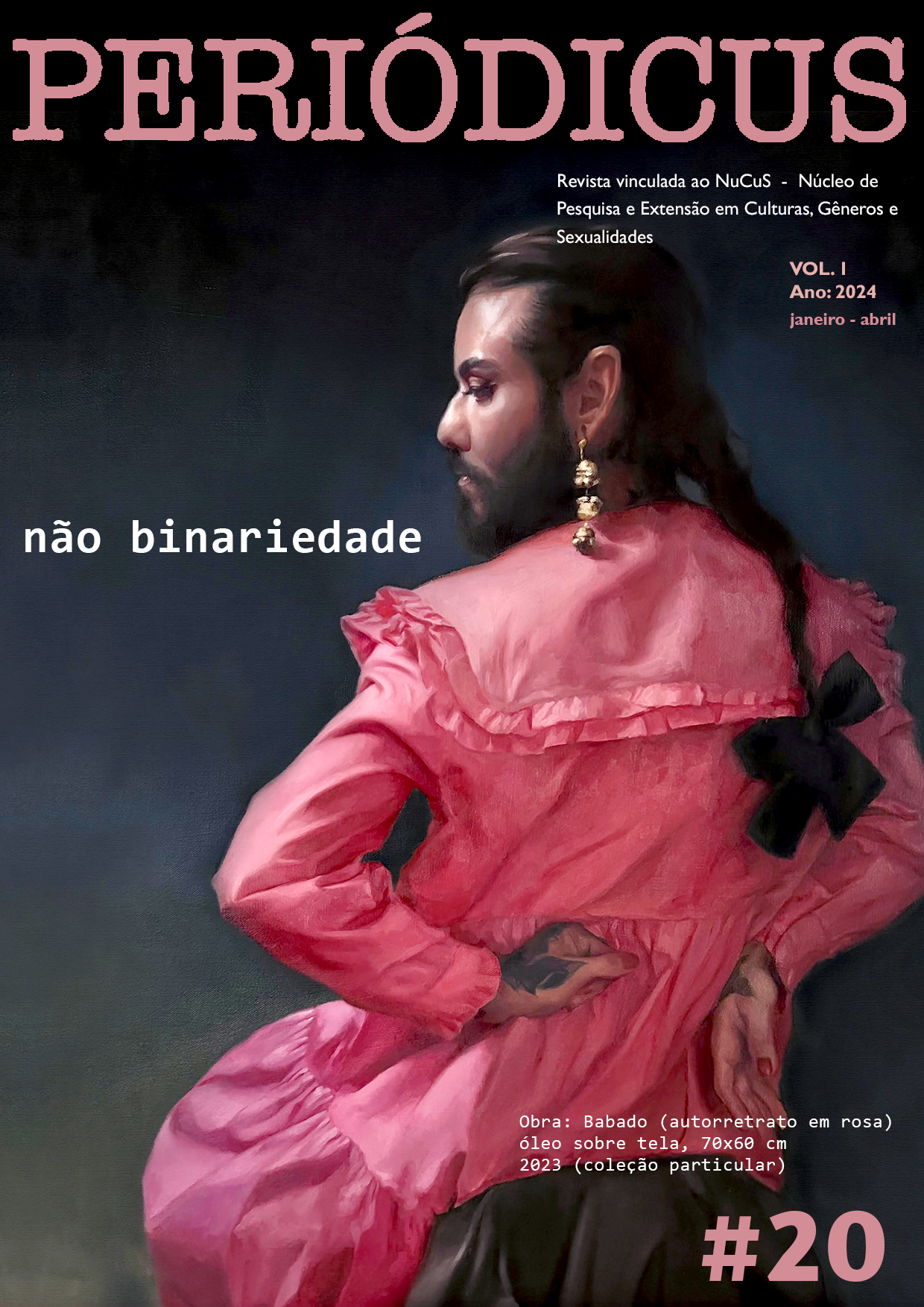"Mona, I don't have to teach you"
reflections on non-binarity of gender, interpellation and psi practice
DOI:
https://doi.org/10.9771/peri.v1i20.54808Abstract
Despite the recent changes and social and political advances that non-binary people have been conquering in recent years, adopting this gender identity in Brazil still means facing major challenges, so present in trans populations: the lack of social recognition (including within the community LGBTQIAP+), the invisibilization of specific demands in health care (physical, mental and social), the different forms of transphobia and social and affective isolation. In the first part of this article, based on the report of my experience in the master's degree in Social Psychology at the State University of Rio de Janeiro, we will discuss the importance of qualified and up-to-date training in gender and sexuality issues in undergraduate and graduate courses in psychology. In the second part, based on the narrative of Mab's story (a non-binary person who participated in the field phase of the research), we will observe the dilemmas of fluidity and social interpellations in the construction of a non-binary identity.
Downloads
Downloads
Published
How to Cite
Issue
Section
License
Copyright (c) 2024 Ana Carolina Padilha da silva

This work is licensed under a Creative Commons Attribution-NonCommercial 4.0 International License.
Autores que publicam nesta revista concordam com os seguintes termos:
Autores mantêm os direitos autorais e concedem à revista o direito de primeira publicação, com o trabalho simultaneamente licenciado sob Licença Creative Commons Attribution Noncommercial que permite o compartilhamento do trabalho com reconhecimento da autoria e publicação inicial nesta revista, sendo vedado o uso com fins comerciais.
Autores têm autorização para assumir contratos adicionais separadamente, para distribuição não-exclusiva da versão do trabalho publicada nesta revista (ex.: publicar em repositório institucional ou como capítulo de livro), com reconhecimento de autoria e publicação inicial nesta revista.
Autores têm permissão e são estimulados a publicar e distribuir seu trabalho online (ex.: em repositórios institucionais ou na sua página pessoal) a qualquer ponto antes ou durante o processo editorial, já que isso pode gerar alterações produtivas, bem como aumentar o impacto e a citação do trabalho publicado (Veja O Efeito do Acesso Livre).







